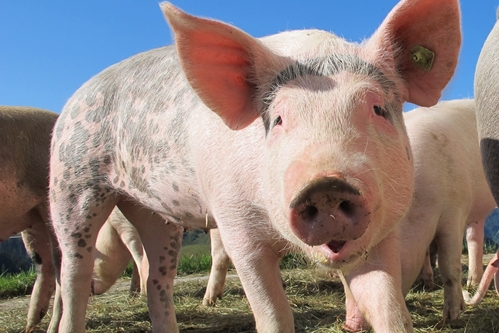16 March 2017. A one year-old company applying genome editing to make animal organs fit for human transplantation is raising $38 million its first venture funding round. The company eGenesis Inc. in Cambridge, Massachusetts is taking to market technologies developed by its founder Luhan Yang, a postdoctoral research fellow at Harvard Medical School.
Yang and eGenesis plan to use an emerging genome-editing technique to make organs from pigs suitable for human transplantation, and address the continuing problem of shortages in organs needed for transplants. According to the web site OrganDonor.gov, more than 119,000 people in the U.S. are on waiting lists for organ transplants, with another person added to the list every 10 minutes. Despite nearly 21,000 organ transplants being performed in 2015, an estimated 22 people die each day waiting for a transplant.
Yang is doing research at Harvard Medical School in the lab of geneticist and company co-founder George Church in eradicating porcine endogenous retroviruses from pig cells, tissues, and organs. The presence of these retroviruses throughout the pig genome prevents xenotransplantation, or the transfer of pig organs to humans, where they can infect human cells, tissues, and organs.
In her research, Yang and Church developed a process using a genome-editing technique to inactivate these porcine retroviruses. The technique known as Crispr, short for clustered regularly interspaced short palindromic repeats, is based on bacterial defense mechanisms that use ribonucleic acid or RNA to identify and monitor precise locations in DNA. The actual editing is done by proteins such as Cas9 or Cpf1. In a paper published in the journal Science in November 2015, Yang and colleagues successfully edited-out all copies of genes responsible for porcine endogenous retroviruses from a line of kidney cells from pigs with Crispr and Cas9 editing, suggesting the technique could be applied to human transplants.
Yang, the company’s chief scientist, and her team expect to apply genome engineering to address these porcine retroviruses, as well as any other immune-system issues in the animals, and raise pigs for organ xenotransplantations. The company’s business plan includes preclinical testing of the viability and functionality of tissue transplants, as well as trials with separate herds of pigs leading to an investigational new drug application to Food and Drug Administration.
The company is raising $38 million in its first round of venture financing, led by technology and life science investors Biomatics Capital and ARCH Venture Partners. Each lead investor is represented on the eGenesis board of directors. Taking part in the round are Khosla Ventures, Alta Partners, Alexandria Venture Investments, Heritage Provider Network, Berggruen Holdings North America Ltd., Uprising, and Fan Ventures.
“With this significant investment,” says Yang in a company statement, “we expect to leverage our powerful genome editing platform to create a pathway toward developing and delivering a safe and effective xenotransplantation solution for patients in need.” Yangs adds, “While some challenges remain, our founding team confidently aspires to create a world where patients don’t have to die waiting for an organ transplant.”
More from Science & Enterprise:
- Report: More Biotech Regulations Needed, and Soon
- Duchenne Gene-Editing Company Launched, Raising $5M
- Genome Editing Builds Viral Disease Resistance in Pigs
- Patent Office Decides for Broad and Editas in Crispr Case
- Biotech Group Withholds Support for Germline Trial Report
Hat tip: Fortune/Term Sheet
* * *


 RSS - Posts
RSS - Posts
[…] Organ Transplant Start-Up Gains $38M in Early Funds […]